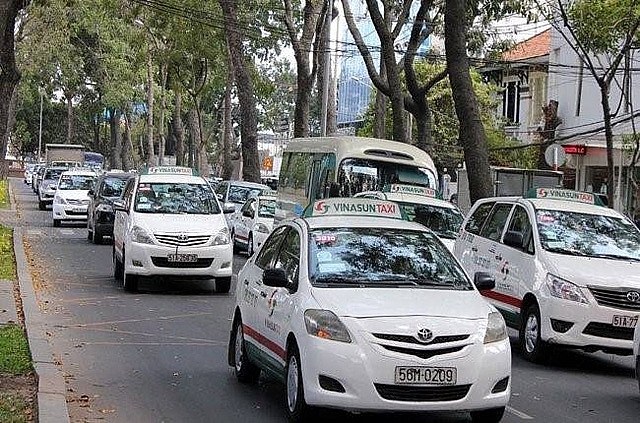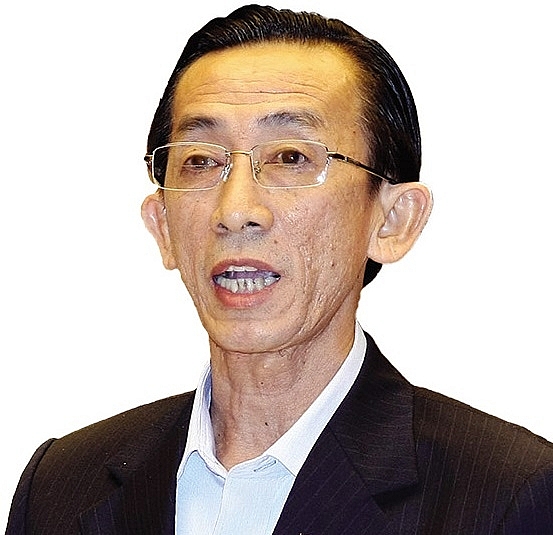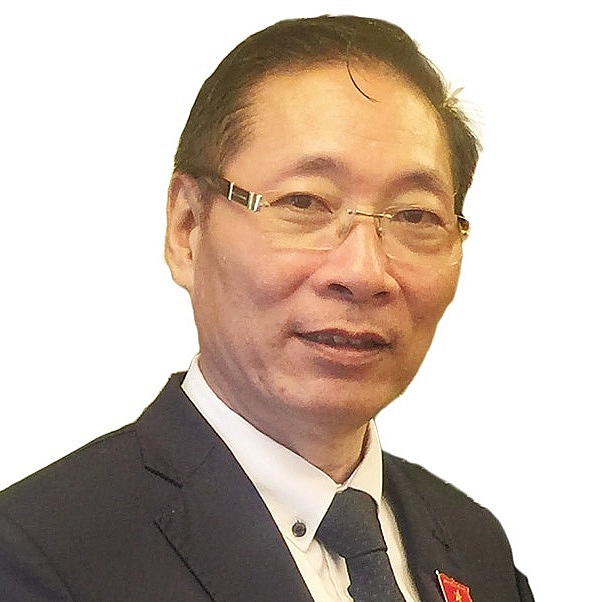Observers wary of Grab suit outcome
 |
| Observers wary of Grab suit outcome, illustration photo |
Last week, the Ho Chi Minh City People’s Economic Court had yet to reach a final verdict on the lawsuit between taxi operator Vinasun and ride-hailing app company Grab due to a lack of solid evidence. The hearing has been adjourned until November 22, when the court is expected to collect more evidence from the taxi business.
As previously reported by VIR, Vinasun brought the lawsuit against Grab, claiming that alleged ‘illegal operations’ of the tech firm were to blame for a loss of VND42 billion ($1.82 million) in the company’s revenues in 2016 and 2017.
Grab, in response, called the accusations baseless and the lawsuit against it an abuse of the court system. In addition to refuting all of Vinasun’s allegations, Grab also called for an adjournment when a court-appointed damage assessor, Cuu Long Inspection Valuation, was not represented in court.
At the hearing on October 29, the judging committee focused on a clarification of Vinasun’s losses as well as the causal link that exists between Grab’s operation and Vinasun’s losses. According to the committee, lost earnings from Vinasun can happen for a variety of reasons such as the demand of customers and general competition in the market.
Meanwhile, court damage assessor Cuu Long remains out of sight and therefore out of reach to respond to issues related to the 5,000-page report. It is complex for the court to verify and validate the content of the report. Therefore, the verdict has been delayed so that the court can verify and supplement the documents and evidence related to the assessment results.
While the lawsuit has yet to be resolved, debate rages about the competition between ride-hailing app firms and traditional taxi operators. The rapid proliferation of ride-hailing app firms has left the taxi industry struggling, with a number of taxi companies going bankrupt. This has led to the first-ever lawsuit between a traditional taxi operator and a ride-hailing app firm over supposed loss of earnings in Vietnam.
On the other hand, ride-hailers claimed that they have brought about greater economic and social benefits for the country and citizens. They are also proud of their cutting-edge technology that will drive Industry 4.0 forward in
Vietnam. Due to the growing controversy, experts and companies have raised their voices on the issue.
Tran Hoang Ngan, National Assembly deputy, Ho Chi Minh City
 |
This case is a quite sensitive one and it is forecast that the domestic judiciary sector will face similar situations in the future, when the Fourth Industrial Revolution takes a stronger hold in Vietnam.
This case is difficult to solve and not commonly found anywhere else in the world.
Amid the Fourth Industrial Revolution, even nations with a developed judiciary system will find it difficult to settle cases like this one, between technological taxi firms and traditional ones. In many countries, there has been a conflict in interest between these types of companies. Thus a court is needed to solve this case in order to ensure the interests of all parties. I also think that if a business operates in the transport sector, it must be managed as a transport business. The thing here is that any business with strong competitiveness and the most impressive technology will always win.
Nguyen Chien, Lawyer, National Assembly deputy, Hanoi
 |
In this case, the plaintiff has to prove how and what violations the defendant has made, and what legal regulations the violations refer to, as well as what the aftermath will be for the plaintiff from the violations.
The claim for compensation must be based on specific legal foundations and in line with regulations of the law, so that the court can accept it. If the plaintiff has no sufficient legal groundwork, the court can only partly accept.
In addition, in order to show that the plaintiff suffers from losses caused by the defendant, there would need to be an agency recognised by the state to appraise the loss.
Nguyen Ngoc Ha, 25, Hanoi
 |
I use Grab’s services regularly because it is much more convenient than traditional taxis.
I often receive many unexpected tasks, so I need the services to meet my travel demands of short taxi times and safety. Before Grab and Uber entered into Vietnam, I had to use traditional taxies with several disadvantages.
There can be a long time to wait for a car, and drivers tended to travel longer routes to earn more money from customers.
So for me, traditional taxi services like Vinasun filing a lawsuit against Grab due to the impact on its business is completely baseless.
Julien Brun, Managing partner, CEL Consulting
 |
This specific battle between traditional taxi companies and platforms such as Grab is not specific to Vietnam. Many other countries including the US, where the model was developed first through Uber, have had to resolve this legislation ambiguity.
The underlying trade off behind such a decision is: how to ensure that the traditional taxi companies maintain a decent level of activities while allowing other companies to innovate in order to offer better value for money to the consumers.
Such a case highlights the challenge behind disruptive businesses (using technology as an accessory) that follow a completely new economical model which doesn’t typically fit exactly in the legislation framework. Should the framework evolve or should companies try to fit in what has been defined in the past? Politically it is about the balance between favouring innovation versus ensuring compliance.
This new competition also required taxi companies to innovate themselves to remain attractive and competitive to consumers. This is the benefit of competition. But fair competition also requires a set of clear rules. The issue here is whether these companies are comparable and whether they should follow the same “fair competition” rules.
From a consumer’s standpoint, the outcome of taking a traditional taxi and a Grab, Uber or GoViet ride is the same. You got transported where you wanted for a certain fee. So regardless of the business models of these companies, they have the same mission, address the same market, and thus can be considered as competitors and should follow the same “fair competition” rules, in theory.
Whether these fair competition rules are clear enough is the question. If they are not clear enough in the law as it exists today, then penalising a company for not following unclear rules will set a precedent that could impede the trust of companies with regard to their chance of being successful in the Vietnamese market.
So the outcome of this trial will be interesting to observe and whether Grab is penalised or not, the outcome of the decision is less important than the message it will convey, being either:
- Fair competition rules need to be clear.
- Regardless of the business model, the rules need to be respected provided that they are clear.
The press and media will need to explain what the underlying reasons are behind this justice decision, and also to avoid sending a negative message that could be wrongly interpreted as Vietnam over-protecting traditional companies at the expense of innovation - potentially impacting the ability of consumers to have access to better and cheaper services.
Nguyen Viet Ha, Managing director, Vietnam Office of public policy and consulting firm BowerGroupAsia Inc
 |
The Fourth Industrial Revolution is creating enormous economic opportunities for anyone who knows how to leverage technology application. There are and will be more applications, like Grab and Uber, which connect between demand and supply not only in transportation but also in other services such as finance, healthcare, and education. Any countries which are able to adopt and facilitate the developments will be the winners in this revolution. The case of Vinasun and Grab has raised the question of whether Vietnam has been ready for such developments of the Fourth Industrial Revolution.
It has been more than four years since Grab launched its application, but there has not yet been a clear legal framework for them and other companies, which use similar apps to connect drivers and riders. There are still controversies in determining whether they are a taxi or a technology company, and whether they compete unfairly with taxi companies. No matter what they are and how they do, consumers have benefited from a new choice and great experience in their daily commutes. They forced traditional taxi companies to review and improve themselves in order to survive and compete. That is how technology works.
Ralf Matthaes, Managing director, Infocus Mekong
 |
The lawsuit is not surprising, as this is happening around the world. Many traditional taxi companies are being decimated by these “Rider Platforms”, which are not being held accountable to the same industry standards. Vinasun is a respectable company that invests substantially in vehicles, technology training and safety for the benefit of their customers. Hence, all competitors should be held to the same operational regulations.
I do not believe this would be a setback but rather sends a message to future investors that as long as companies are following Vietnam’s labour and safety laws, you are welcome to invest.
The best result would be to enforce the same rules and regulations governing the transportation and labour sectors, for all operators. This would at least create a fair and equitable playing field.
Ultimately, competitions and innovation are incredible business catalysts and welcome in any market capital driven economy, as long as the rules of engagement are the same for all players.
Nguyen Dinh Cung, director, Central Institute for Economic Management
 |
Some people say that Grab lacks responsibility in that it does not buy social insurance for its driver partners, while traditional taxi companies do.
The drivers working for traditional taxi companies are hired employees, so under the current law, the employer – here traditional taxi companies – are obliged to buy social insurance for them.
Meanwhile, Grab’s drivers are not hired employees, they are the masters of their own business (doing business with Grab). Their motorbikes or cars are their own assets. In western countries, they are categorised as self-employed, thus buying social insurance is entirely up to them.
The state also has a voluntary social insurance scheme that people who have an income can register to buy. Motorbike taxi drivers have been present in Vietnam for years, and most of them have yet to buy social insurance for themselves.
The only thing they changed was to install the Grab app on their phones to boost the efficiency of their work. I find it is completely irrational to force Grab to buy social insurance for these drivers as the nature of the business is wholly different from traditional taxi companies.
What the stars mean:
★ Poor ★ ★ Promising ★★★ Good ★★★★ Very good ★★★★★ Exceptional
 Tag:
Tag:
Related Contents
Latest News
More News
- NAB Innovation Centre underscores Vietnam’s appeal for tech investment (January 30, 2026 | 11:16)
- Vietnam moves towards market-based fuel management with E10 rollout (January 30, 2026 | 11:10)
- Vietnam startup funding enters a period of capital reset (January 30, 2026 | 11:06)
- Vietnam strengthens public debt management with World Bank and IMF (January 30, 2026 | 11:00)
- PM inspects APEC 2027 project progress in An Giang province (January 29, 2026 | 09:00)
- Vietnam among the world’s top 15 trading nations (January 28, 2026 | 17:12)
- Vietnam accelerates preparations for arbitration centre linked to new financial hub (January 28, 2026 | 17:09)
- Vietnam's IPO market on recovery trajectory (January 28, 2026 | 17:04)
- Digital economy takes centre stage in Vietnam’s new growth model (January 28, 2026 | 11:43)
- EU Council president to visit Vietnam amid partnership upgrade (January 28, 2026 | 11:00)






















 Mobile Version
Mobile Version